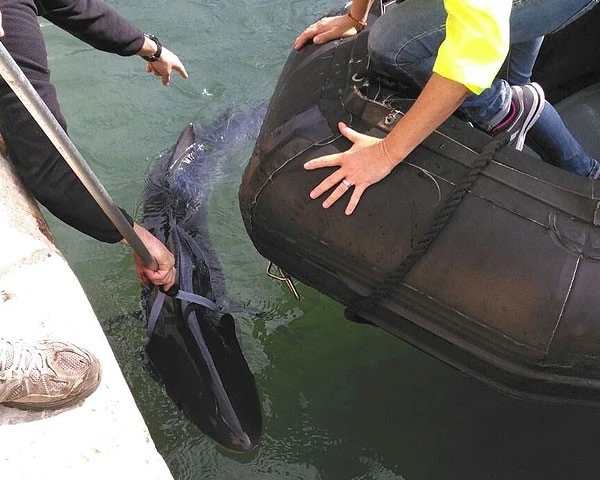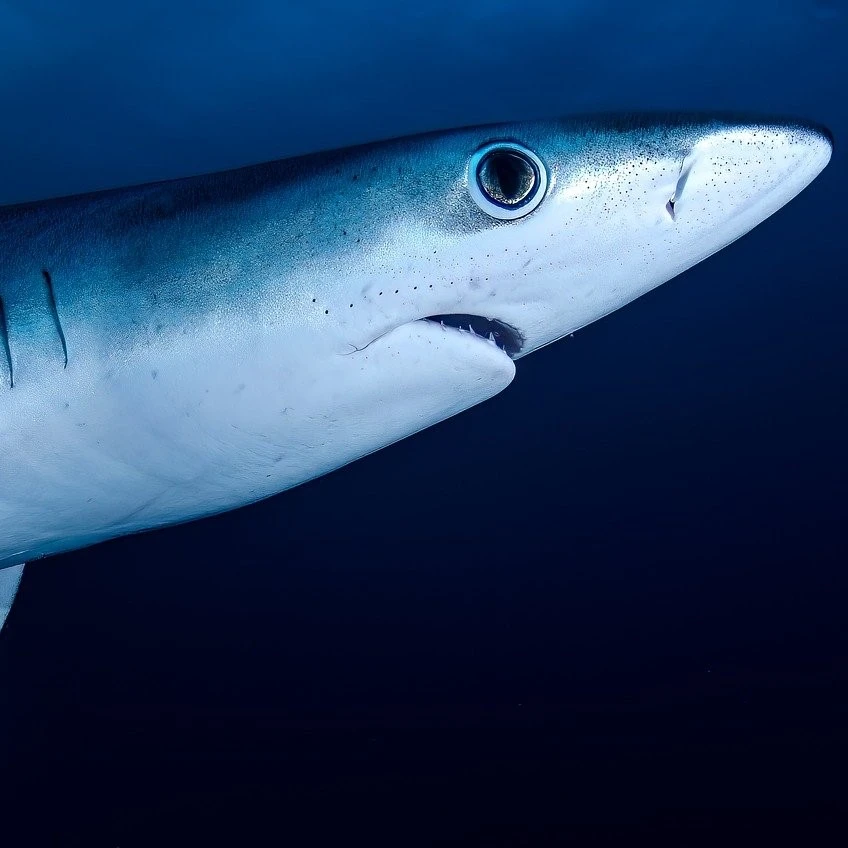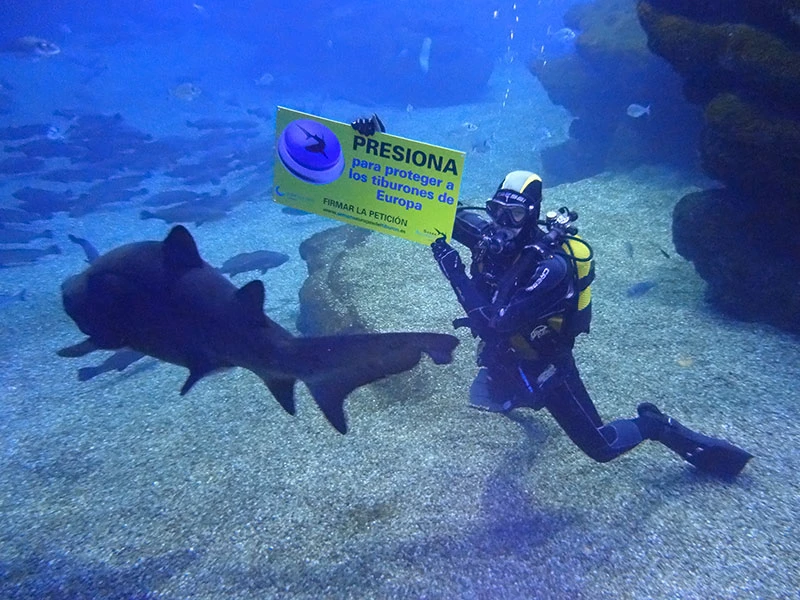-
¿Quiénes somos?
¿Quiénes somos?
-
Proyectos
-
Centro de recuperación
Centro de recuperación
- Colabora
- Noticias

Today, the Mediterranean Sea is home to 56 shark species. Most are experiencing a decline in their populations due to commercial exploitation, bycatch and loss of habitat. This, combined with their low reproduction rate, makes these species highly vulnerable.
Experts estimate that shark populations in the Mediterranean have declined by between 96% and 99% since the mid-20th century. These figures are extremely worrying, as in just over 50 years, the decrease in individuals belonging to a number of shark species, such as hammerheads, makos and blue sharks, has been devastating.
Sharks and rays grow slowly, reach sexual maturity late, and have a low reproduction rate, which makes them particularly vulnerable to overexploitation.
They represent a significant proportion of the bycatch of trawlers fishing in the Mediterranean, although the majority will not be landed. As a result, more than half of the sharks and rays in the Mediterranean are threatened by fishing activities, and 43% of the species are classified as “endangered” or “critically endangered” on the International Union for Conservation of Nature’s Red List.
The bluntnose sixgill shark (Hexanchus griseus) and the blue shark (Prionace glauca) are the two species of shark that most frequently strand in our waters.
Since 2015, the team from the Palma Aquarium Foundation has been authorised by the Directorate-General for Fisheries and the Marine Environment to assist with shark strandings on Mallorca, recording species and compiling biological data.

You should always call 112, the emergency number. The operators will contact the Palma Aquarium Foundation's Marine Fauna stranding network, which, in turn, will contact the person with the animal and give the necessary instructions.
You must NEVER ACT ON YOUR OWN ACCORD



Since it opened, Palma Aquarium has worked for the protection of the marine world and all the animals that inhabit it, with a special focus on sharks.
It is essential to implement effective conservation measures to protect these species, which are vital for maintaining the balance of marine ecosystems.
 Colabora
Colabora